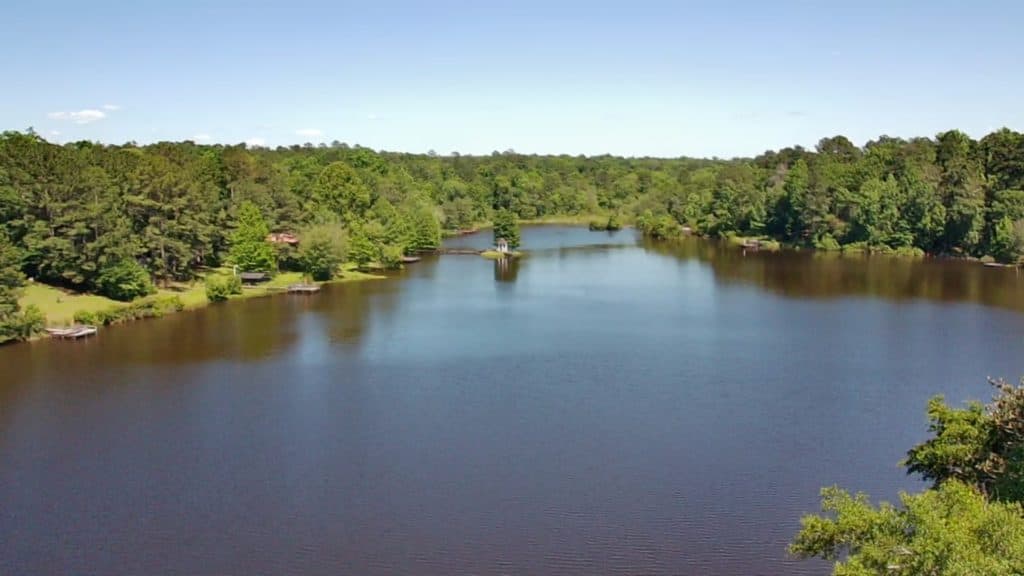First Impressions Matter

When it comes to securing permission to fish private ponds, every angler knows the weight first impressions can carry. Much like spinning a lure in the water, you have to present yourself as something appealing and respectful, someone they could trust on their property even when they aren’t around. This is more than just showing up neatly dressed—though that certainly doesn’t hurt—it’s about demonstrating your appreciation for their land along with your understanding of the responsibility this privilege entails.
You might want to start by introducing yourself if you’re not already acquainted with the landowner. Be polite and express genuine interest in them and their land beyond its potential for fishing. A firm handshake, confidence, and the right demeanor will go a long way. Don’t show up in your truck in a ratty t-shirt and shorts like you are already planning on fishing.
Look presentable, be engaging, and be ready to direct the conversation. Remember this, you are most likely not the first or even tenth person to ask them for permission. Many landowners will immediately be on the defensive when getting asked permission. Having a conversational attitude and directing the conversation will pay dividends on gaining access and building a relationship with that landowner.
Make it known that you’re an admirer of nature who recognizes and respects their property’s value beyond just being a fishing spot; highlight your sincere enjoyment of fishing as a tranquil, serene experience rather than merely trying to catch as many fish as possible. Many landowners will naturally be concerned about how well you’ll treat their property while you’re there, so it’s essential that you reassure them on this point right off the bat.
Explain clearly and sincerely how conscientious an angler you are: How do you respect nature? What measures do you take to clean up after yourself?
What efforts will you make not only to preserve but also possibly enhance their pond’s environment? Remember, first impressions are incredibly important in this process—so make sure yours counts!
Be a Part of the Community

Building a sense of camaraderie with the local community can be instrumental in securing fishing privileges on private ponds. This could involve frequenting the local gas stations where landowners meet for coffee, participating in community events or even frequenting the local diner. It is pretty simple, folks recognize the people they see around them on a regular basis. If the farmers at the gas station see you often stop in and treat others with respect, that will give you an edge on making an ask when approaching them for permission.
Immersing yourself in the local culture and engaging in congenial conversation allows you to forge a connection with fellow residents. Do not underestimate the value of warm, friendly interaction as it helps to establish trust and build rapport.
As an angler seeking access to private waters, you are more likely to gain permission if you are viewed as an approachable, trustworthy individual rather than an outsider imposing on their space. Plus, being part of a community often means looking out for each other’s interests – taking care of their pond might become just as important to you as it is to them.
A very simple opportunity that serves you well is stopping by the local tackle shops, if you have them. Local landowners will also stop in these shops, and it could be an easy method on how to get a conversation going towards fishing.
Developing a relationship with locals also provides an opportunity for education and exchange of information about fishing techniques and habits, which can prove beneficial for both parties involved. It may start off as casual chat about shared hobbies but could evolve into discussions about specific fish species present in the pond or best times to fish.
While you benefit from this insider information, your newfound friends may appreciate your tips on bait selection or casting techniques. Thus, investing time in becoming part of the local fabric isn’t just about scoring some prime fishing spot – it can open the doors to many avenues and information that you didn’t know previously.
Practice Catch & Release
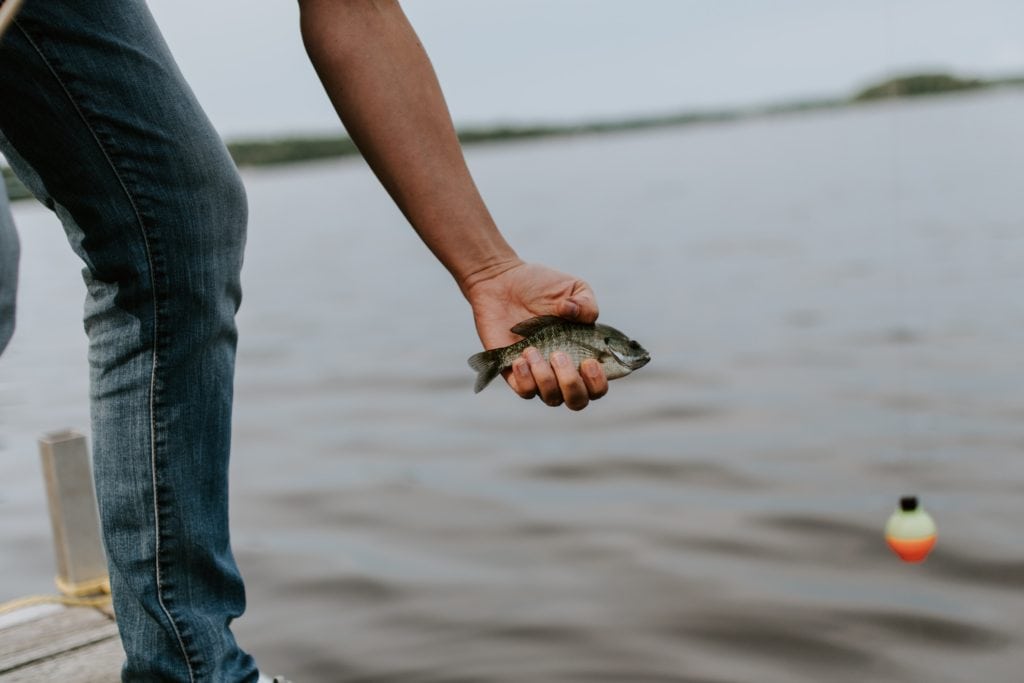
Many anglers make the huge mistake of not announcing that they are ethical fisherman who are not looking to drain the pond of all the fish that swim in it. Think of it from the landowner’s perspective: At the public ponds and lakes, you see folks keeping way too many fish on a regular basis, trash, and overall disrespect of the lake and other’s property.
Coming straight out of the gate mentioning you are only planning on catching and releasing everything you catch can go a long way with winning over minds.
It signals your intent is purely recreational, rather than exploitative. You’re not there to deplete their aquatic assets but rather to enjoy the peace and quiet that comes with casting a line and reeling in a catch – experiences that are abundant regardless of whether the fish ends up on your dinner plate.
Moreover, it manifests your understanding of sustainability issues related to fisheries. Overfishing can lead to devastating effects on thier fish populations, potentially disturbing the pond’s delicate ecosystem balance. Many farm ponds are not meant to keep an abundance of fish. Respect that – and you will have gone a long way towards gaining permission.
By practicing catch and release, you assure owners that their investment won’t be negatively impacted by granting you access. This commitment extends beyond just respecting property rights; it’s about preserving nature for future generations while building healthy relations based on mutual respect with fellow enthusiasts.
Fish Alone
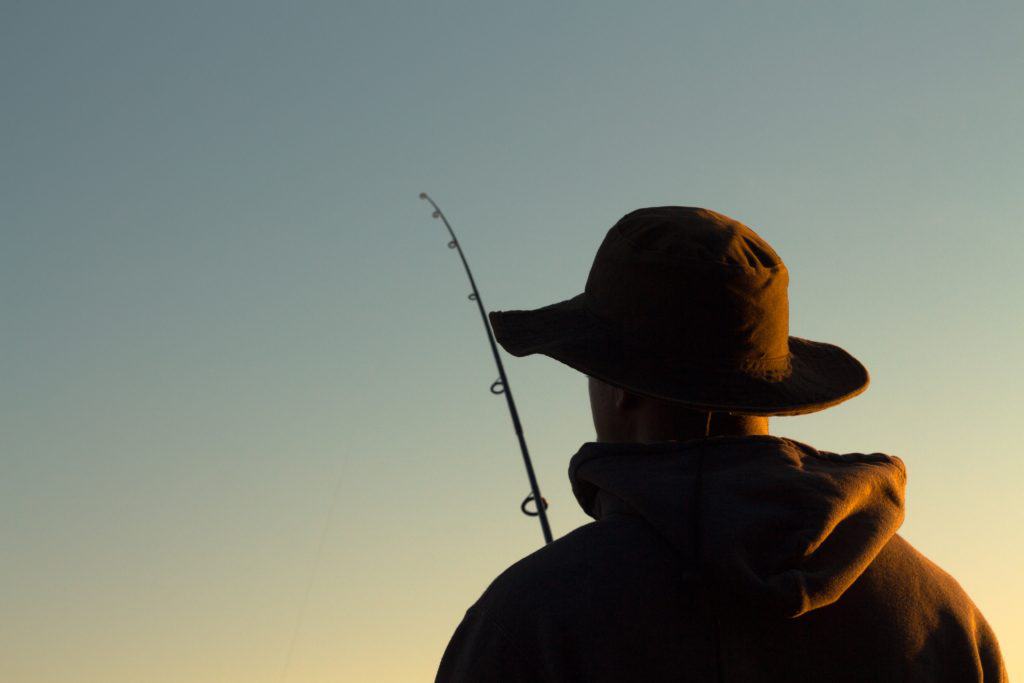
I would say the number one mistake that anglers do when either asking for permission or gaining access is bringing others to fish on private lands.
Remember this, unless explicitly told by the landowner, you never received permission to bring a host of buddies or pals to come along as well. If you want a one way ticket to not getting permission again, it is to be deceiving and say only you will be fishing, and then when you actually show up you have a few buddies in a truck.
The thought of having a crowd around can be intimidating or off-putting for some landowners. It increases the chances of property damage, noise disturbances or even potential liability issues. These are all fair arguments, and I see it ruin chances for others again and again.
A solo angler, on the other hand, presents less risk and disruption. Furthermore, fishing alone allows you to establish rapport with the landowner more easily. Remember, this isn’t just about getting permission to fish the landowner’s waters and then dipping out for the day. You must present value and build a strong relationship to keep fishing.
It creates an opportunity for personal connection; perhaps a friendly chat here and there or even sharing a cup of coffee or a beer once in a while. This camaraderie can foster trust and goodwill which may be instrumental in gaining regular fishing privileges on their property.
Once you have built a long standing relationship of trust and rapport with that property owner, than you can start gauging whether or not you should ask for permission to bring a friend.
Offer Services
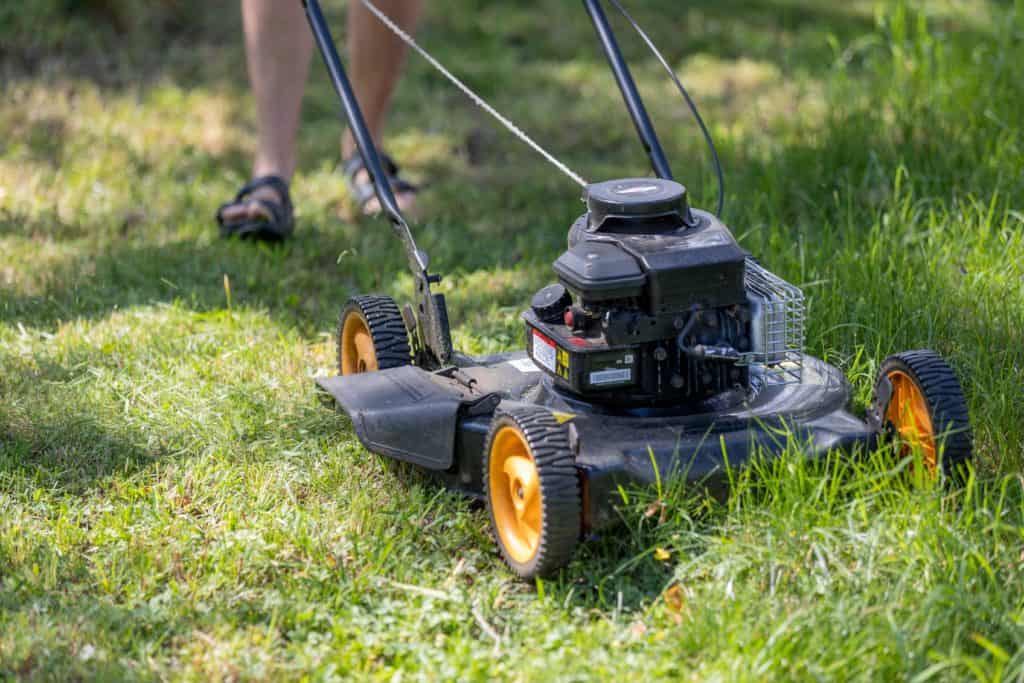
In the realm of fishing etiquette, a bit of reciprocity goes a long way. Offering your skills, time, and resources for pond maintenance can be a winning strategy when seeking permission to fish in private waters.
It’s a simple concept that works wonders—lighten the owner’s burden in exchange for your angling privilege’s. In life, you can never expect “a free lunch”. There has to be reciprocation, whether it is offering maintaining the pond, mowing their yard, fixing a fence, or any of the millions of chores the landowner might have.
It’s not just abou chucking lures and catching fish when you own a pond or lake; there’s upkeep involved. Overgrown banks need trimming, feeding programs for fish need to be established and followed, accumulated trash needs clearing out — in short, maintaining such an oasis is no small responsibility.
So step into those shoes—offer to tend to these chores every so often. You might have noticed an overhanging branch that could use some trimming or some debris littering the water’s edge on your previous visits.
A friendly offer to handle these tasks on your next visit could persuade the owner to grant you continued access. And let’s not forget: creating this cooperative relationship helps ensure their property remains pristine for future generations of both fish and fishers.
Use Letters as Your last option
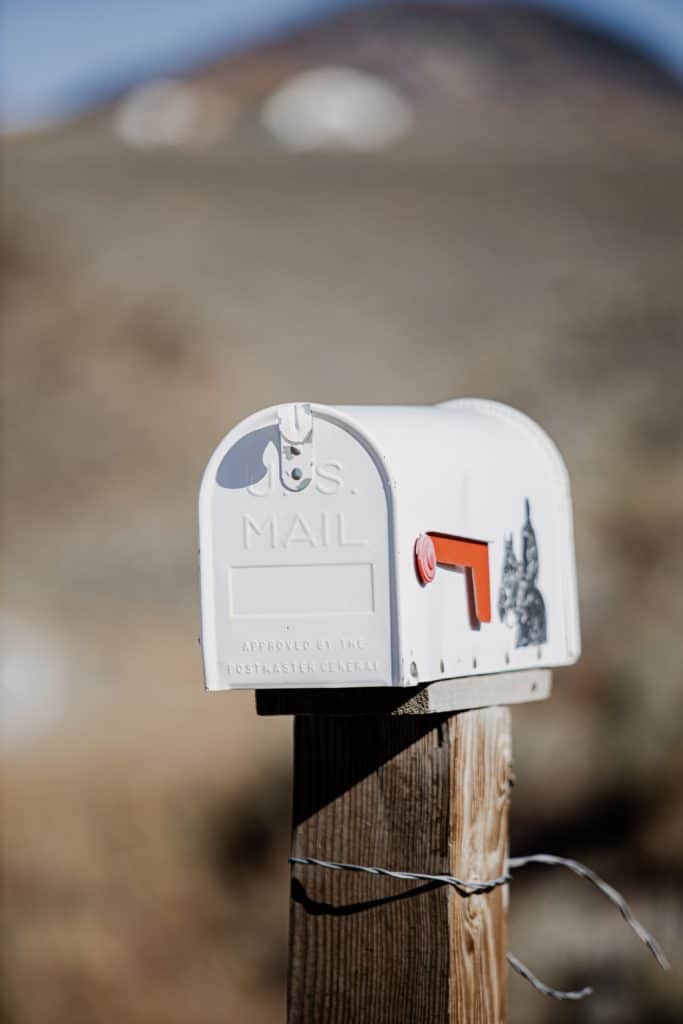
In an era where digital communication is king, the allure of a handwritten or typed letter can be surprisingly effective. There’s a certain charm associated with this traditional form of communication that can’t be replicated through emails or text messages. If you’ve exhausted all your other options, consider sending a handwritten letter as this might sway the pond owner’s decision to grant you fishing permission.
There are however, some important aspects to keep in mind while using this method. Firstly, ensure your spelling and grammar are impeccable; it reflects your attention to detail and respect for the recipient.
Tone is equally vital – maintain a polite and respectful approach throughout the letter. Make sure to clearly explain why you’re asking for permission to fish in their private pond, perhaps drawing attention to your love for nature or sharing memories of fishing with family.
While writing your request, aim at leaving a lasting impression on the recipient so that they remember who you are and what you’re asking for even after they’ve finished reading your letter. Talk about how much fishing means to you personally – perhaps share an anecdote about your first catch or how fishing helps relieve stress after a long day at work. If you are part of the community or they might recognize you or others, name dropping or pointing the landowner in remembering who you are will go a long way.
And lastly, remember: patience is key here! It may take time for them to read and reply back – some may not even respond at all.
But don’t get disheartened; persistence often pays off! And whatever their response may be, show gratitude for their time taken in considering your request.
Offer to Clean the Fish You Catch
Ah, the lure of fresh fillets – a persuasive tool indeed! But remember, this is to be wielded only after obtaining explicit permission. Also, I often let the landowner lead me to the solution of whether I ever keep fish or not. They will often be upfront about their expectations. Make sure to listen and respect those decisions.
In the world of private pond angling, it’s not unusual for landowners to be wary of individuals who are interested merely in plundering their waters for a quick catch. They have most likely poured their heart and soul into that water body.
However, once you’ve established trust and received consent to fish, offering fresh fillets can be a potent instrument for strengthening this newfound relationship. There’s something incredibly satisfying about reaping the rewards of one’s own water body.
A portion of fresh-caught fish from their pond can serve as a symbol of appreciation for their generosity. This wholesome gesture communicates respect for their space while also hinting at your skill as an angler.
In order to ensure that you do this right, it would be wise to ask if they enjoy consuming fish in the first place. Some people might prefer catching them simply for sport or hobby and may not appreciate being handed over what they consider ‘catch-and-release.’ On the other hand, others might relish the thought of a delicious dinner prepared with fish caught from their own pond.
It’s all about understanding preferences – doing so can create an amiable rapport between you and the landowner. You see, subtleties such as these make all the difference when asking for permission to fish private ponds.
It shows rather than tells how much you value access to these precious waters. Plus, nothing binds people better than food does!
If you do happen to have the opportunity to keep some fish, make sure to fillet and package them in a presentable manner to the landowner. Don’t just throw a bag of fish on their porch and call it a day. Properly fillet and bag them up nicely, as just with how you look, a landowner can very well judge you on this gesture as well.
So why not use this universal love language? Just remember: always seek permission first before offering up any catch; this is crucial in maintaining trust and allowing your relationship with the landowner to thrive.
Show Gratification with Gifts

Nurturing a relationship with a pond owner isn’t only about sustaining your fishing rights; it’s about showing them that their generosity hasn’t gone unnoticed. One of the most effective ways to express your gratitude is through thoughtful gifts.
These don’t necessarily have to be extravagant or costly; instead, they should reflect your sincere appreciation for the privilege you’ve been granted. An array of freshly picked vegetables from your garden, a jar of homemade jam, or even a simple thank-you card can create an impression. Here is a hot tip, a simple gift card to the local steakhouse or popular restaurant in the area can go a long way. Bonus points if you pair this with a letter or phone call to invite their family as well.
Also, consider inviting the pond owner to fish with you occasionally if they enjoy angling as well. The camaraderie and shared experience can forge stronger bonds and set a positive tone for ongoing access.
However, keep in mind that giving gifts should not be performed as an obligation but rather as an authentic expression of gratitude. It’s also vital not to overdo it; lavish gift-giving might come across as transactional or insincere, but as a bribe.
Your goal here is to maintain the relationship on good terms rather than converting it into a barter system. The key takeaway from all these tips is that asking permission requires respect, courtesy, and care for both the private property and its owner.
You are not entitled to anyone’s pond just because you love fishing. But with some patience and understanding, you might just reel in more than just fish — you might find friendship in shared passions.
Also, remember that while you may only fish a few months of the year, the relationship lasts the length of it. Items like Christmas Cards, thank you notes, or simply stopping by when it’s freezing out will go a long way in being able to fish next year.
Wrapping Up on HOw To Get Permission
Gaining permission isn’t necessarily tough, it just becomes evident that the art of seeking permission to fish in private ponds is a dance of respect, consideration, and community relationships. It’s about building bonds and demonstrating integrity.
The landscape, the quality of fish, even the company – these are things worth cherishing as much as your biggest catch. So go forth with a sense of gratitude when granted permission to enjoy nature from such exclusive vantage points.
Getting permission to fish private ponds necessitates more than just asking; it requires understanding people’s concerns about privacy and property rights. By showing respectiveness through actions such as solitary fishing or helping with property maintenance can go a long way towards securing future fishing permissions.
Leaving a positive impression isn’t just about getting what you want; it’s also about fostering lasting relationships built on mutual respect and shared love for the outdoors.
If you do get permission, make sure to check out this guide on what baits to use while fishing those Midwest farm ponds. If you are looking for more tips to get better at engaging conversations like asking landowner permission, check out this article.
Tight lines,
Dawson
